Africa. The Turkish friend.
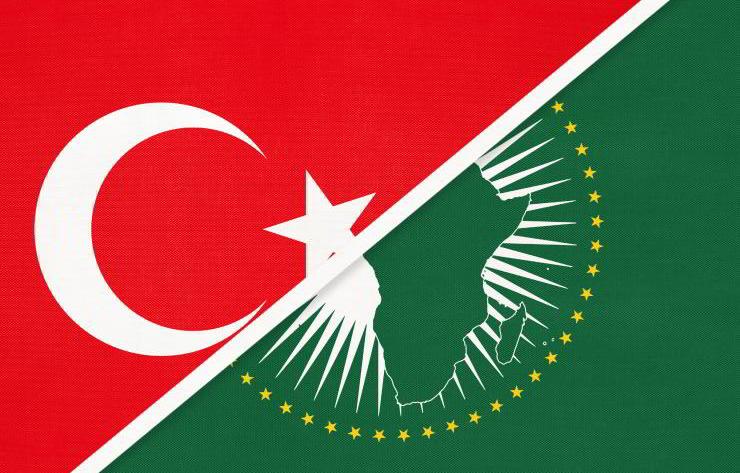
President Erdoğan’s country has built a relationship of trust with many African partners, also taking advantage of their growing detachment from the West. Cooperation, investments and defence have done the rest: the Anatolian presence on the continent is increasingly relevant. Libya, Egypt and Somalia, three countries under scrutiny
If there is a continent where Turkish President Recep Tayyip Erdoğan seems to have no detractors at the moment, it is Africa. The reason is not in the Opening Africa plans launched in 2005 and 2008, or in the Africa Action Plan of 2013, or even in the forum on the Turkey-Africa partnership held every year in Istanbul. African countries are used to proclamations and projects launched by different countries for decades. Initiatives that prove ineffective, if not unsuccessful, or even counterproductive, when put to the test. A film seen several times, which, however, has nothing to do with the pragmatism shown by Turkey in Africa in the last 20 years.
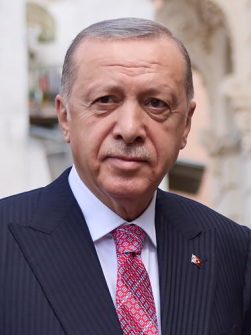
President of the Republic of Turkey Recep Tayyip Erdogan. CC BY 4.0/Pres.Office
Since 2003, Erdoğan has made 41 visits to African countries, the number of Turkish embassies has risen from 12 to 44 and the Turkish national airline has reached 61 destinations across the continent. Trade has also reached 25 billion dollars and Erdoğan has no intention of stopping: the declared objective is 75 billion.
Turkey’s ascent has been continuous and rapid, based on a precise strategy. The bridgehead of Turkish interests in Africa has been for years the agency for cooperation and development, Tika, which can count on more than 22 offices on the continent. Over the years, this body has allowed Turkish penetration through humanitarian interventions: mobile clinics, hospitals, schools, water and electricity distribution systems, which benefit the local populations.”We can operate in Africa because, unlike those who preceded us, we have no imperialist agenda”, the line dictated by Hakan Fidan, who before becoming a foreign minister and head of intelligence had led Tika. A line of intervention that avoids forms of cultural assimilation and that seems instead to pursue a modus operandi that harks back to the tradition of the Ottoman Empire, aiming for a relationship of trust that paves the way for economic agreements.
Investments and defence
Agreements constitute the second step of the Turkish strategy: they translate into investments and consequently into the growth of Turkish interests, which must be protected.
The lack of security is a factor that has caused cooperation plans to fail in the past. Erdoğan and Fidan know this, and for this reason, the protection of missions and investments has always been a priority. Here comes the action against local governments, who are offered supplies of weapons, training programs and agreements in the defence sector.
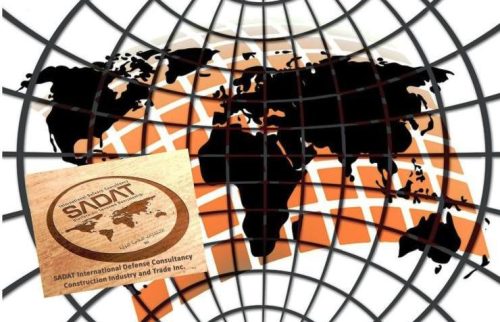
The Turkish defence consulting company SADAT. The company is led by people close to the Turkish government. Photo: Sadat
The aim is to improve the equipment of local forces, increase their number and put them in a position to protect both the country and Turkish interests. Where this is not possible or there are immediate needs, Sadat comes into play, a controversial company of contractors to which operations carried out in the shadows have been attributed. This company is led by people close to the Turkish government who have denied being involved in secret operations and reiterated that Sadat’s mission is to provide training and advice.
In addition to Sadat, Ankara has not hesitated in the past to send Syrian mercenaries to defend its interests. It happened in Libya, but also in Nigeria, Niger and Burkina Faso.
Broadening relations
In short, Ankara trains both doctors and the military, but it also looks to the future. An example of this is the Maarif Foundation, which currently runs 175 schools in 26 countries. The institute trains students who, once at university, can also apply for a scholarship in Turkey.
A pragmatic strategy that has allowed Ankara to become a key player in the Horn of Africa, take on a leading role in North Africa and see its importance grow in the Sahel and Central-West Africa. Somalia and Ethiopia have been firmly in Turkey’s orbit for years now.
After having concluded an important defence agreement with Kenya in 2023, memoranda of understanding to be signed with Djibouti have already been announced.
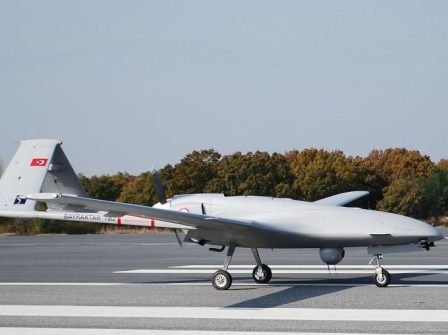
Turkish Bayraktar TB2 drone. CC BY-SA 4.0/ Bayhaluk
In North Africa, Erdogan has established himself as the main actor in the Libyan crisis, has recently mended relations and formed an alliance with Egypt that extends from Gaza to the future of its Libyan neighbour, in addition to having sold its drones to Morocco and Tunisia.
However, Turkey’s constant rise in Africa has also been favoured by the perception of the failure of post-colonial policies implemented by Western countries.
Once upon a time, it was all Paris. France’s gradual detachment and loss of influence has allowed Ankara to advance in the Sahel and push for the opening of embassies in Mali (2010), Burkina Faso, and Niger (2012).
In the Sahel, Turkey has acted on two axes: mending institutional relations and helping the local population. In Mali, for example, a large mosque was built for the Malian Islamic High Council and a second was restored in the hometown of former president Ibrahim Boubacar Keita.
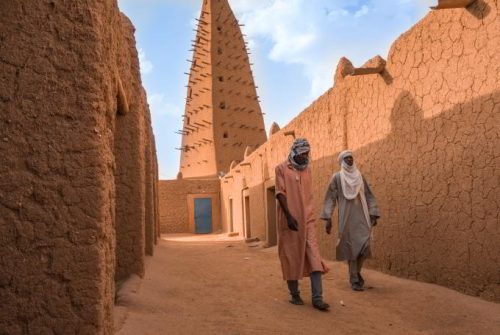
Niger. In Agadez, the Turkish government took charge of the restoration of the Great Mosque. 123rf
In Agadez, the Turkish government took charge of the restoration of the Great Mosque and the palace of Sultan Air, heir to a family whose founder was born in Istanbul in 1400, according to a legend that is always useful for rhetorical purposes.
Ankara’s winning move, however, once again consisted in assisting local populations. Hospitals were opened and schools renovated in Bamako and Niamey between 2017 and 2019, in addition to numerous mobile clinics donated and then sent to the poorest corners of the two countries, where systems for the distribution of water and electricity were set up. The numbers of Turkish trade in the Sahel are still far from those of France and China, but have been growing steadily for ten years.
Heavy artillery
It was inevitable that the intervention should extend to defence: since 2016, Ankara has intensified its collaboration in the Sahel, providing training for officers of the Malian army, who were guaranteed supplies of light weapons and ammunition; Niger and Burkina Faso have purchased Turkish TB2 Bayraktar drones.In West Africa, too, Turkey is ready to challenge France. In Senegal, a new embassy was inaugurated in 2022, but above all a new Olympic stadium built by the Turkish company Summa, opened by Erdoğan two weeks after Senegal won the Africa Cup of Nations for the first time in its history. Erdoğan was also the first Turkish president to visit Togo and Guinea-Bissau (2021), where the inevitable cooperation agreements were concluded.
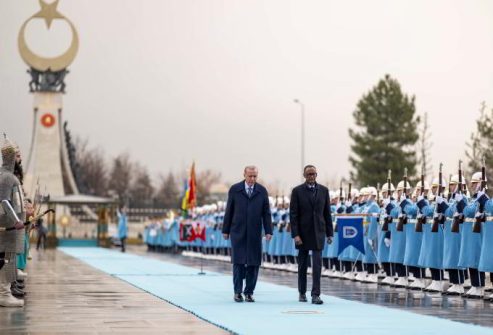
During a recent visit by Rwandan President Paul Kagame to Ankara, Erdoğan declared that he was ready to mediate in the ongoing conflict in the northeastern provinces of the DR. Congo. (Photo. Pres. Office)
In Central and Southern Africa, Turkey has recently taken important steps with Angola, which has asked Ankara for the drones, but could soon take on a much greater weight. During a recent visit by Rwandan President Paul Kagame to Ankara, Erdoğan declared that he was ready to mediate in the ongoing conflict in the northeastern provinces of the Democratic Republic of Congo.
A difficult mediation, but for which the Turkish leader is ready to use the agreements already in place with the two countries to convince the parties with the promise of future advantages.
In addition to mediation, Turkey is ready to deploy another weapon for its rise. “Everywhere they ask me for information on our drones,” declared the President returning from a trip to Africa. The TB2 Bayraktar could not have counted on a better advertisement than the Libyan crisis. After having defended Tripoli, they were ordered by Tunisia, Morocco, Ethiopia, Angola, Nigeria, Niger and Chad.
The Turkish drones seem perfect for ensuring control of vast territories and countering rebels and Islamists, but they could also become the next card to play for Erdoğan, to increase his weight in Africa. (GdD) – (African Union and Turkey, national flag. 123rf)



